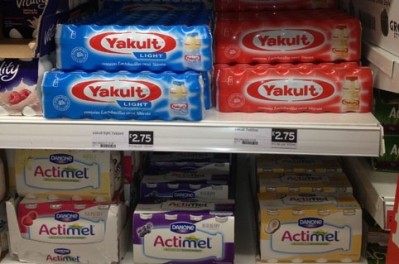Probiotic industry value set to reach £29bn

The market and the latest science in the field, will be discussed at the eighth Probiota conference in Amsterdam, which is arranged by FoodManufacture.co.uk’s sister title NutraIngredients.com.
“Probiota bridges the gap between scientific discovery and commercial application,” said FoodNavigator.com and NutraIngredients.com senior editor Shane Starling.
“The global market for probiotic food, beverages and supplements is growing strongly, valued at £19bn in 2013 and is expected to reach £29bn by 2018,” he added.
‘Products they can trust’
“Consumers are looking for products they can trust to support a range of conditions, from digestive health to cholesterol management, immune system and brain health.”
At the conference, leading academics from across the world will present various studies on subjects such as the effects of probiotics on pregnancy and in early life.
Graham Rook, who is a professor of medical microbiology at University College London, will connect probiotics with microbiota (also known as gut flora), gut inflammation, low stress resistance and psychiatric disorders.
Probiota looks set to attract substantial interest from experts, despite the fact the term probiotic is not recognised in Europe under its Nutrition & Health Claims Regulation. This means products, such as yogurts and yogurt drinks, cannot be labelled with the term.
However, the power of consumer testimonials has allowed the market to thrive in Europe, as well as across the world, Starling added.
‘Large globally’
“The probiotic market is large globally because consumers have consumed them for years and many attain benefits from them, so there is that anecdotal link,” Starling added.
The market’s success had also been fuelled by the large amounts of research available about probiotics. In addition, the European Food Safety Authority’s (EFSA’s) refusal to approve a health claim didn’t mean there were no health benefits in a product rejected in an application, he added.
Italy had already caused a stir in the industry by attempting to use the term probiotic as a ‘generic descriptor’ said Starling, and if it was successful in getting the approval to do so, the term could make a re-appearance on pots of yogurt on sale in UK supermarkets.
Probiota will take place between February 3–5 this year at the NH Grand Hotel Krasnapolsky in Amsterdam.
To find out more and to book your place at the conference, click here















